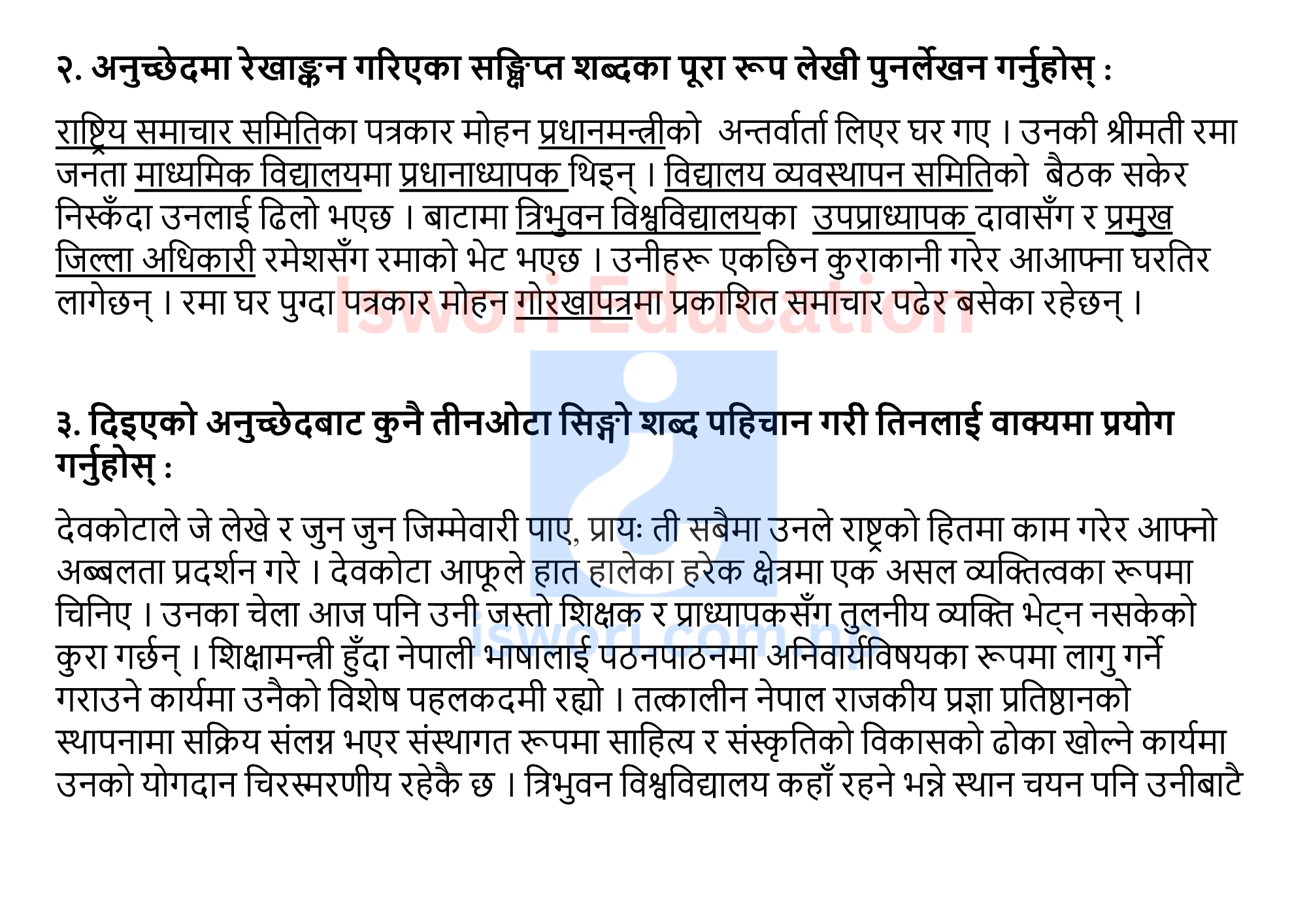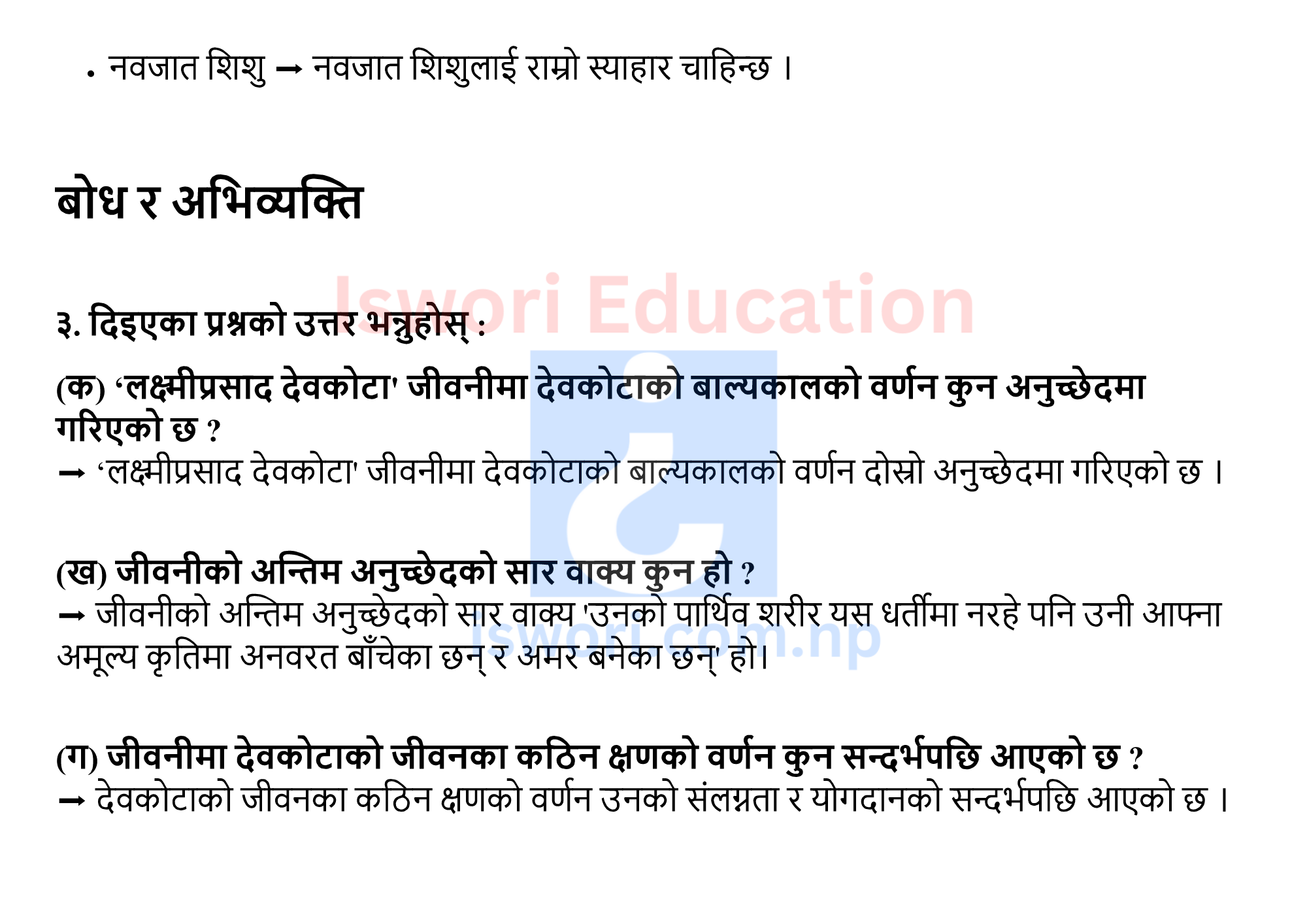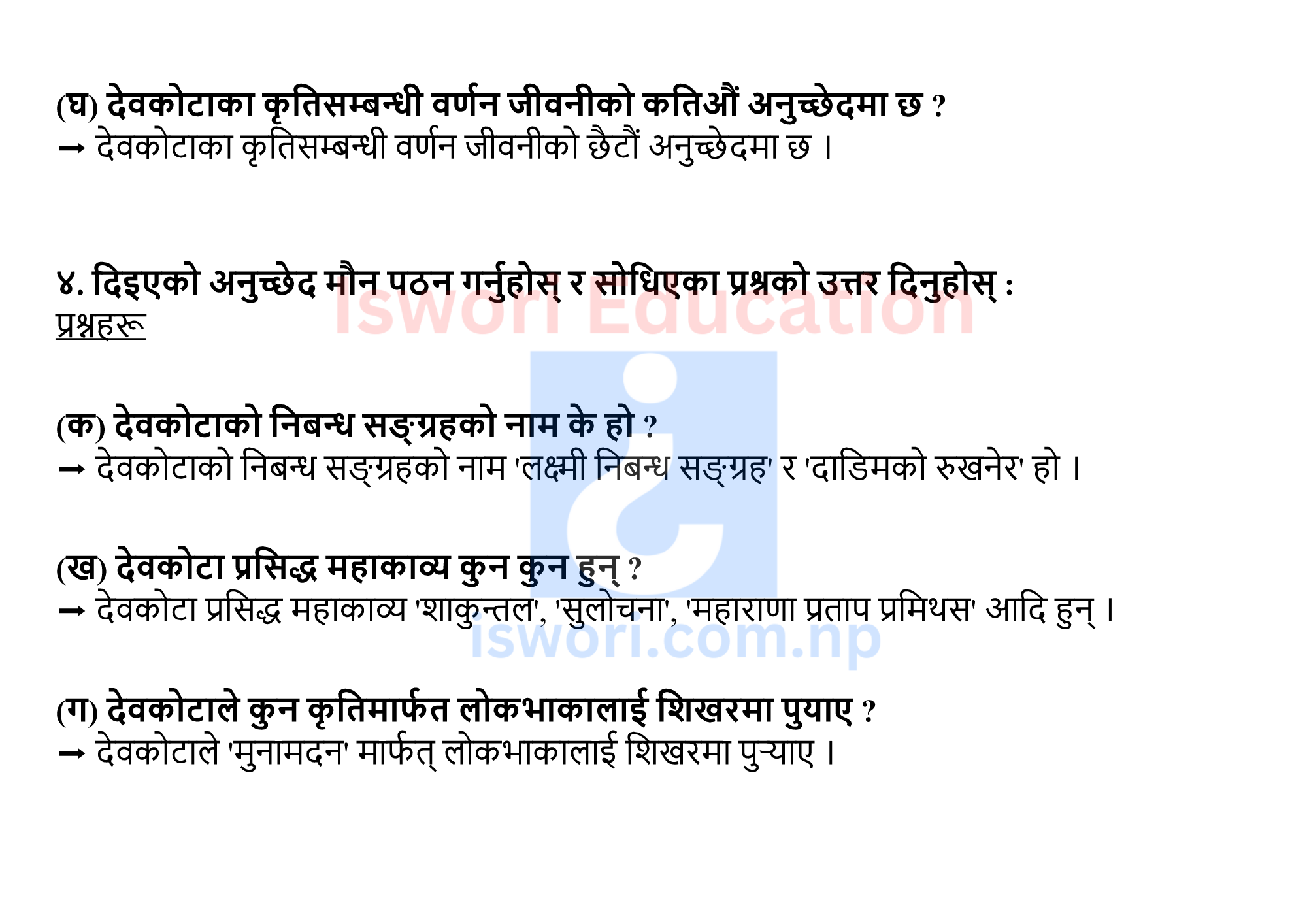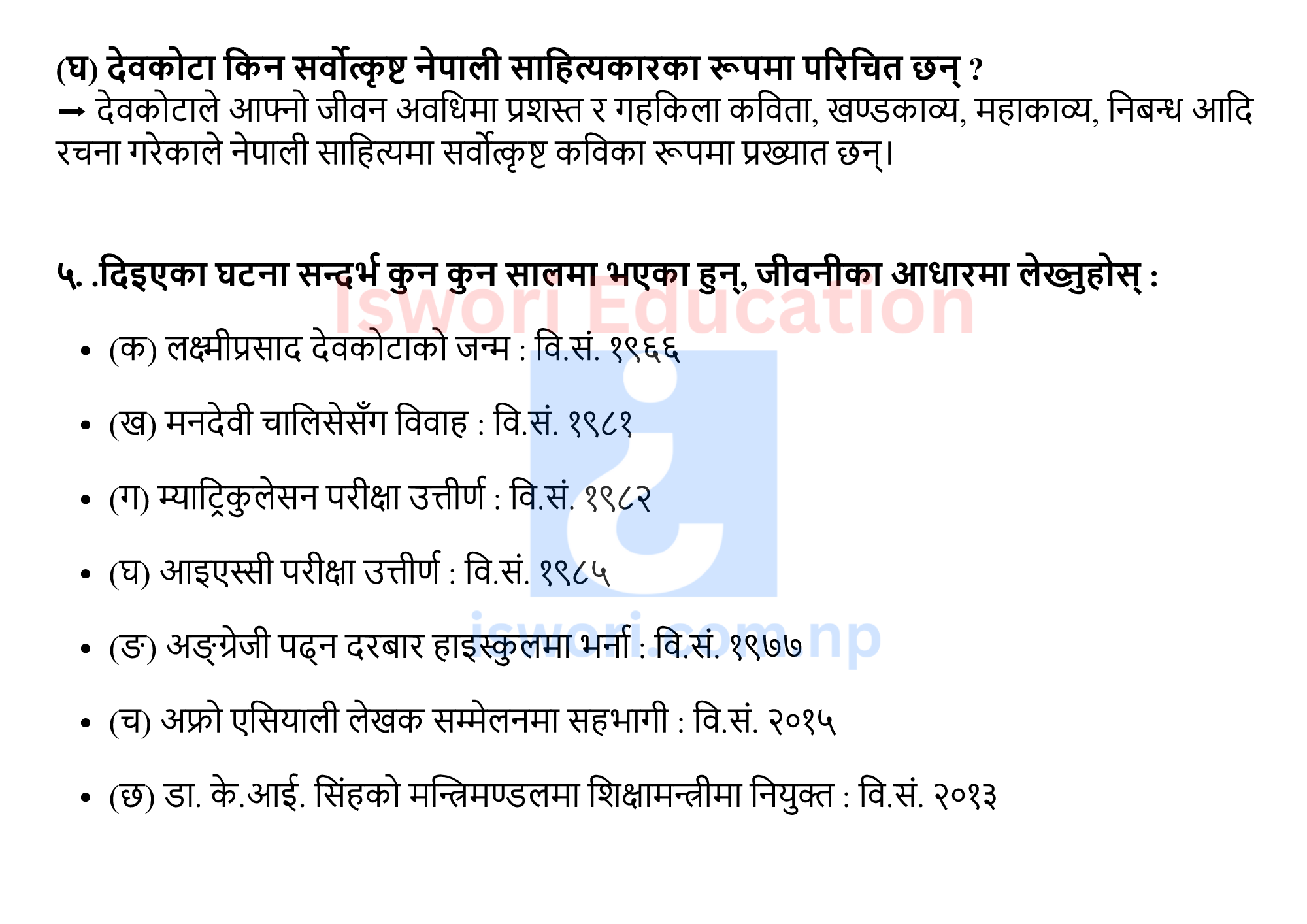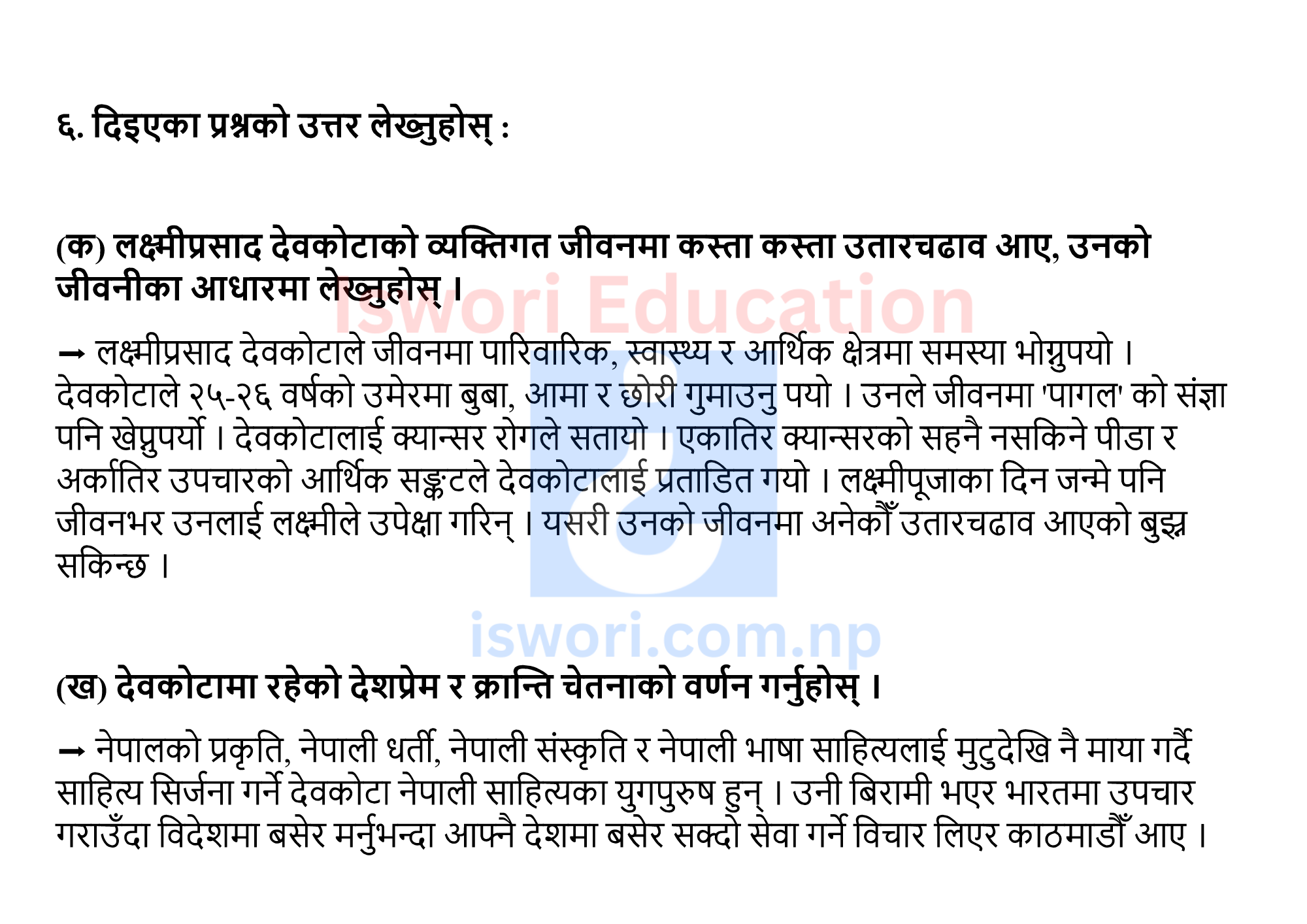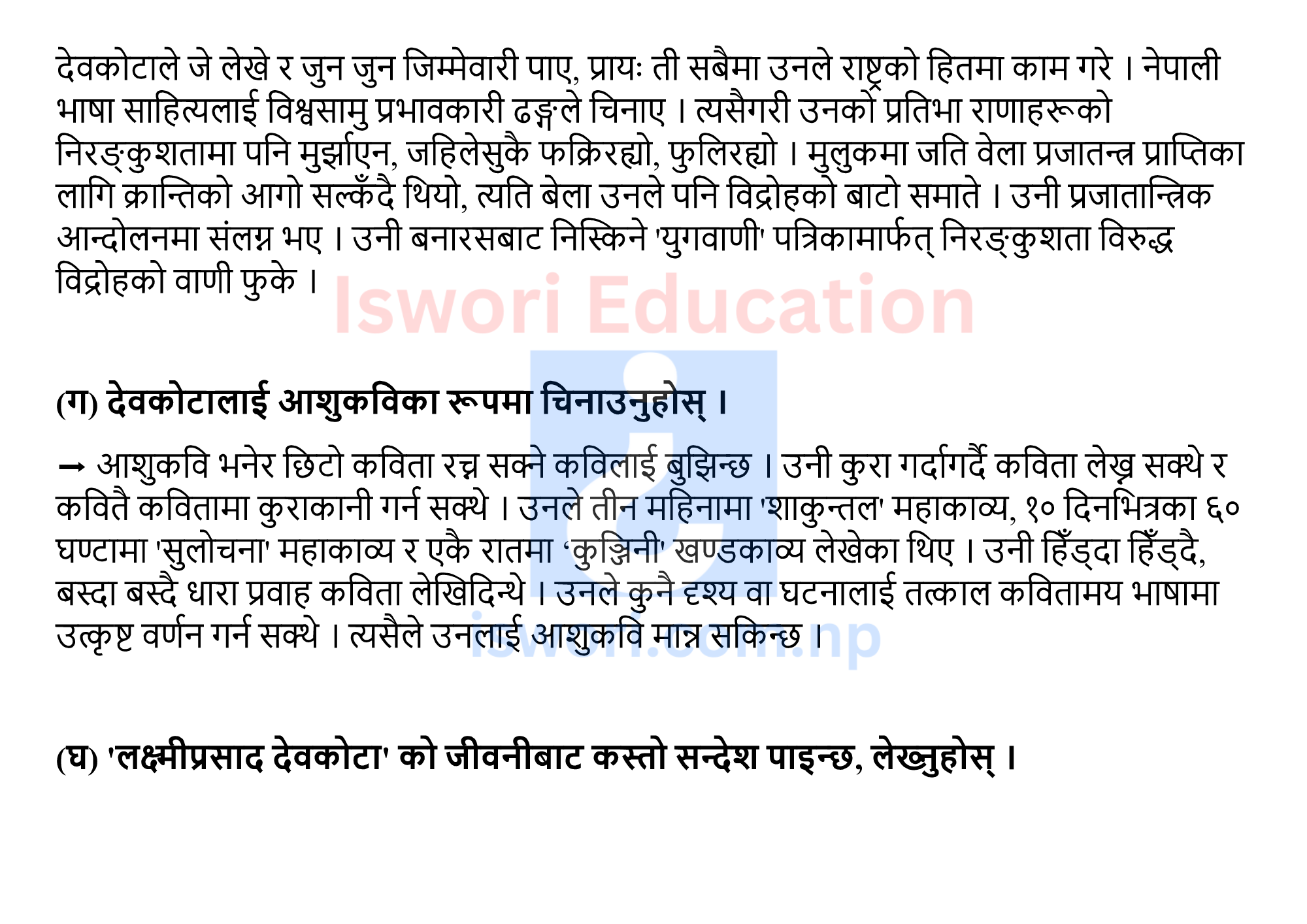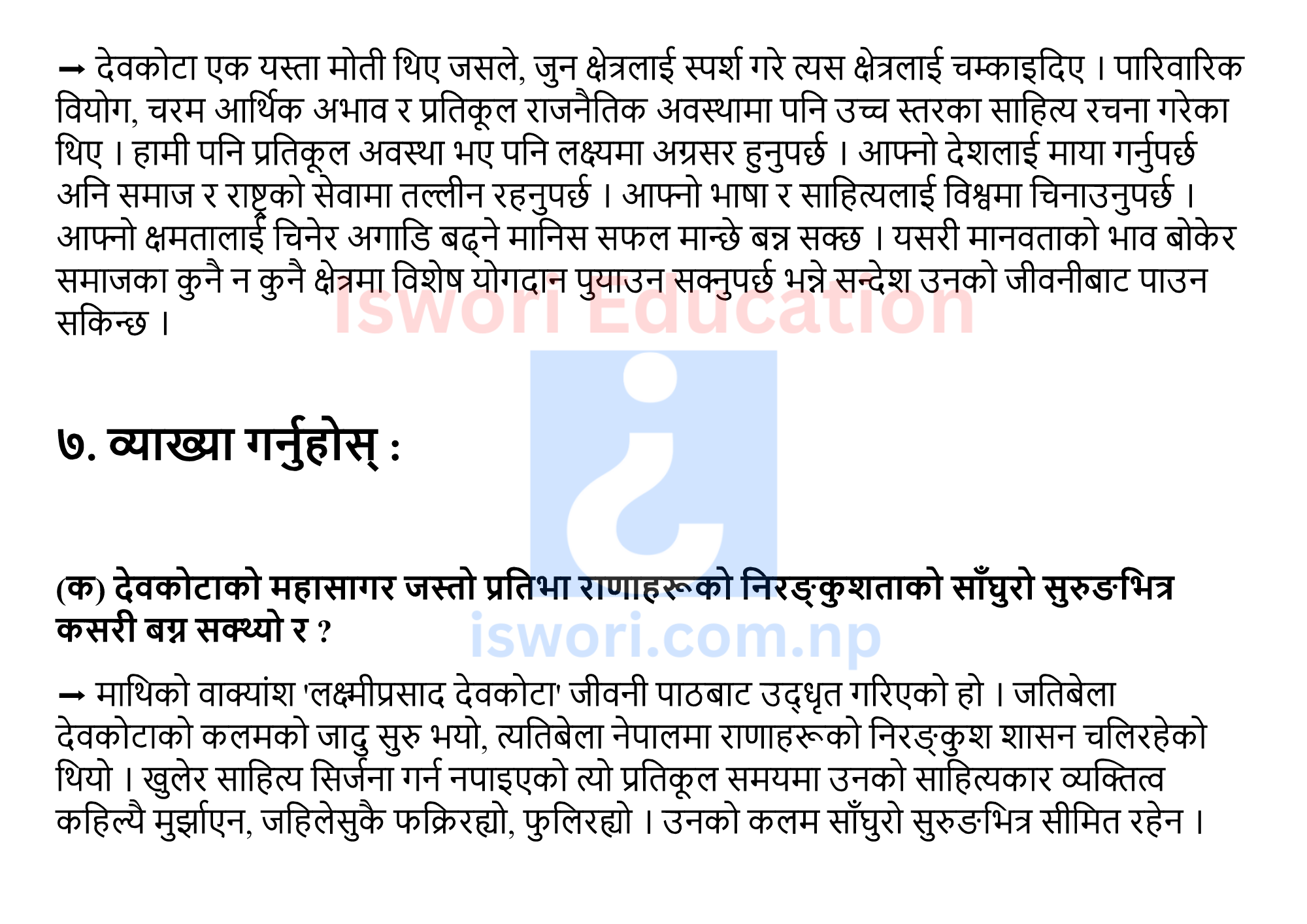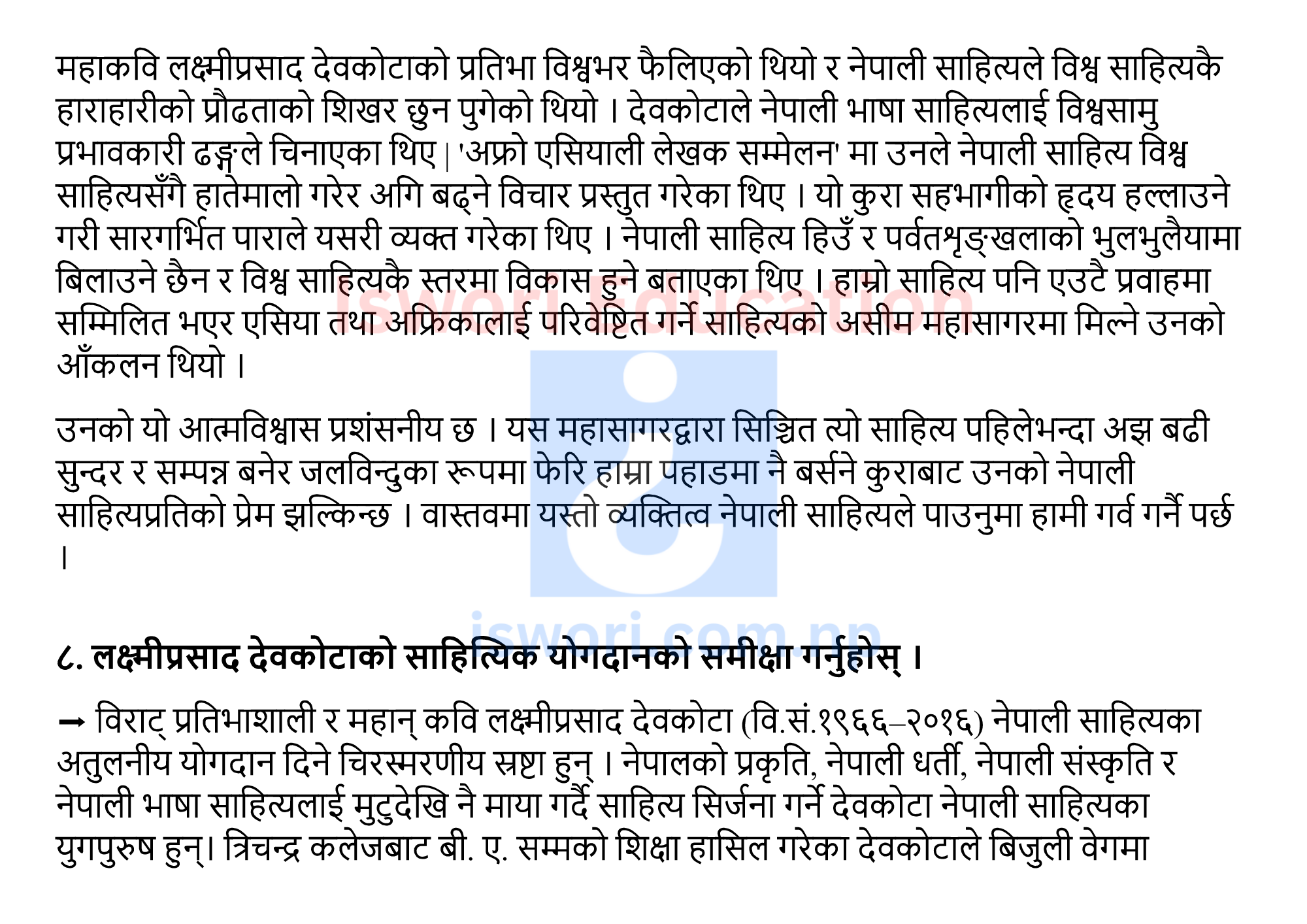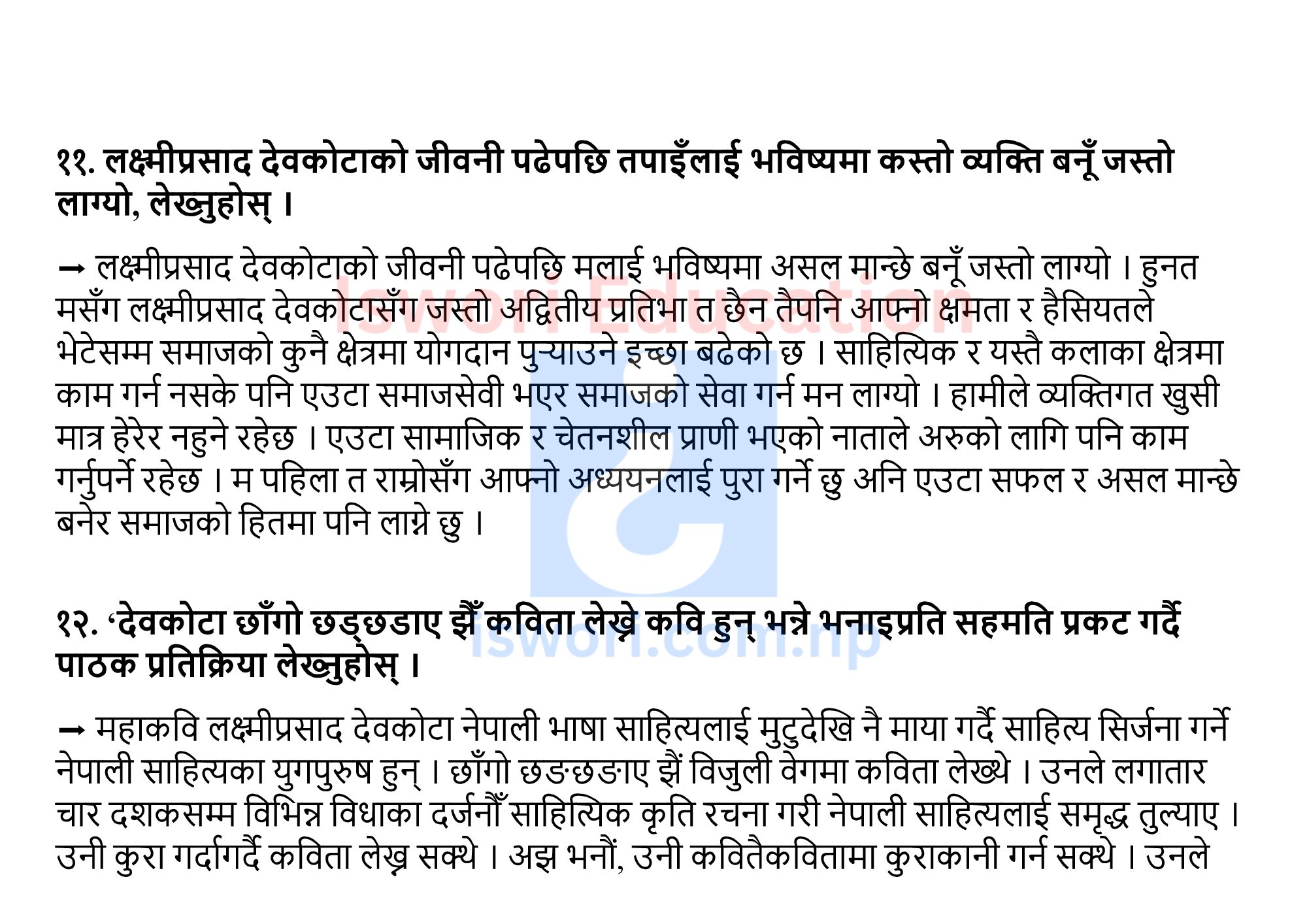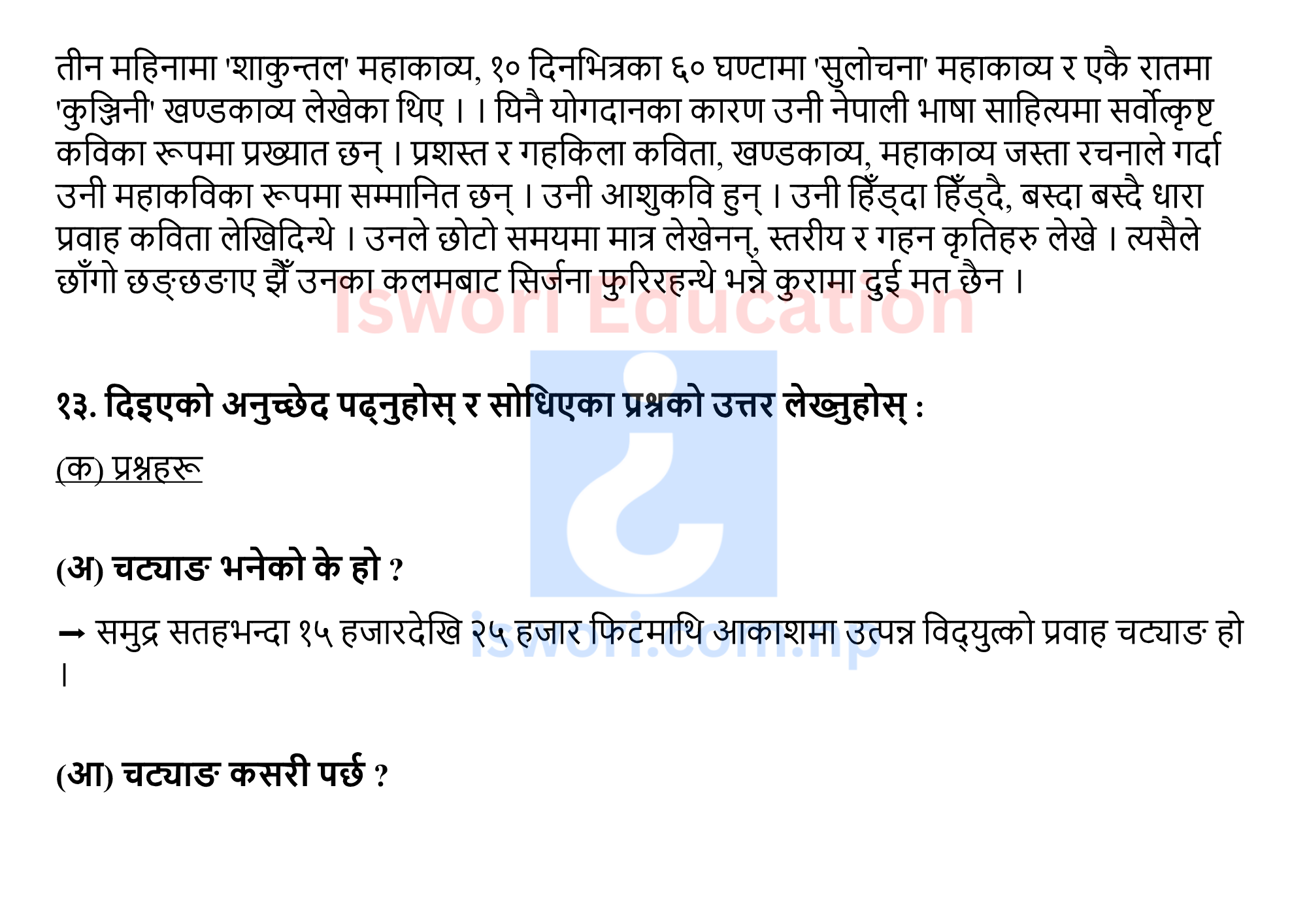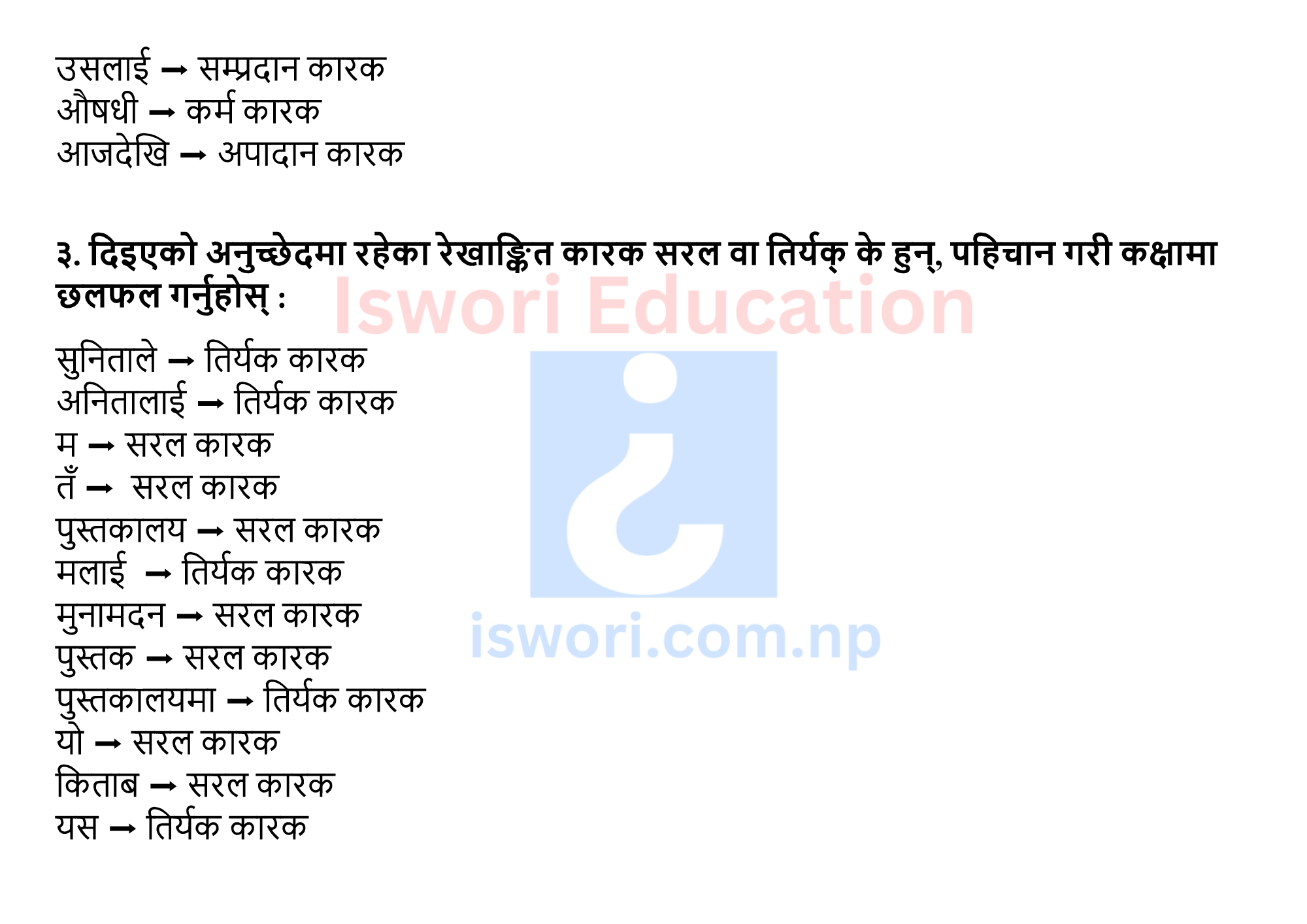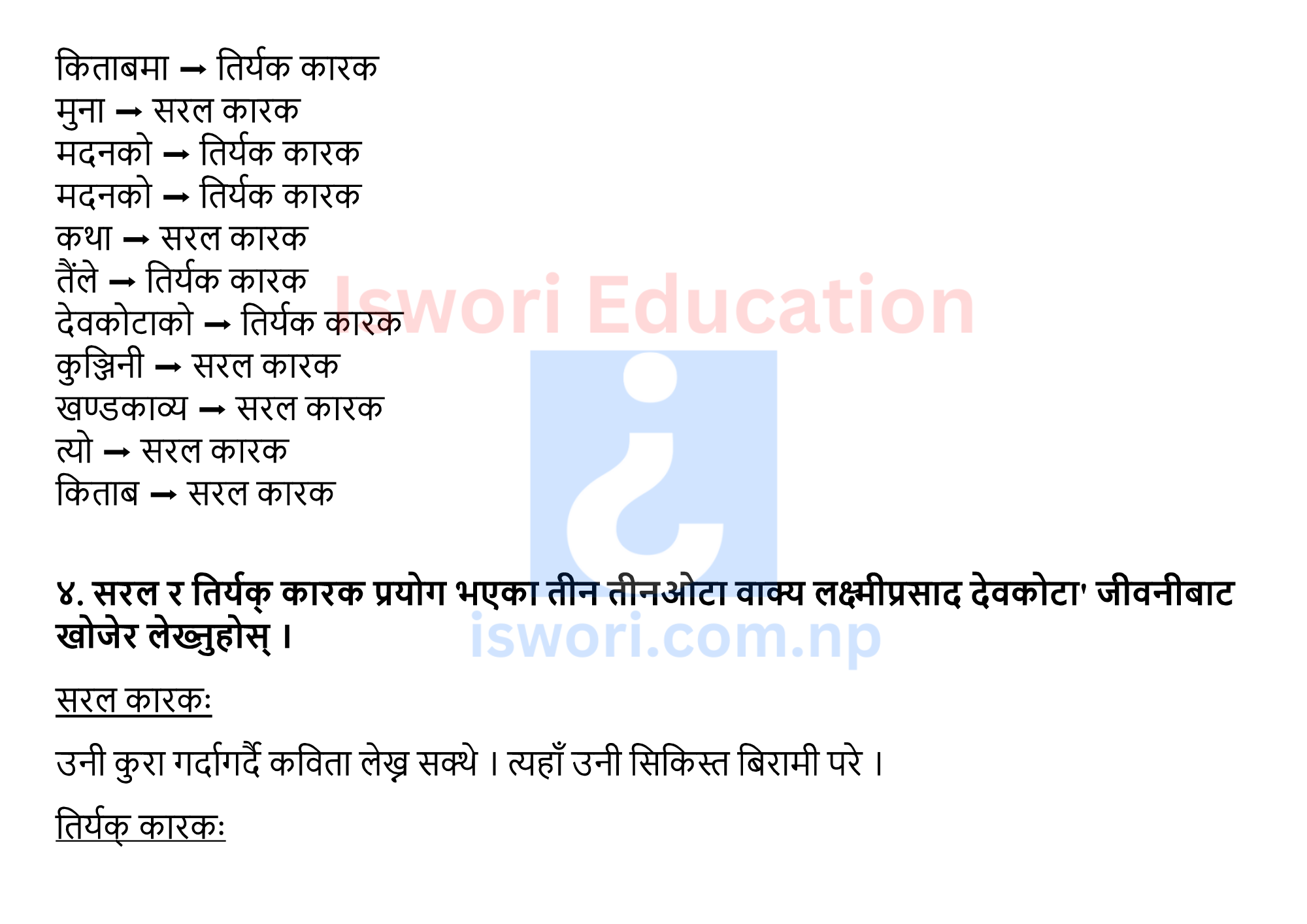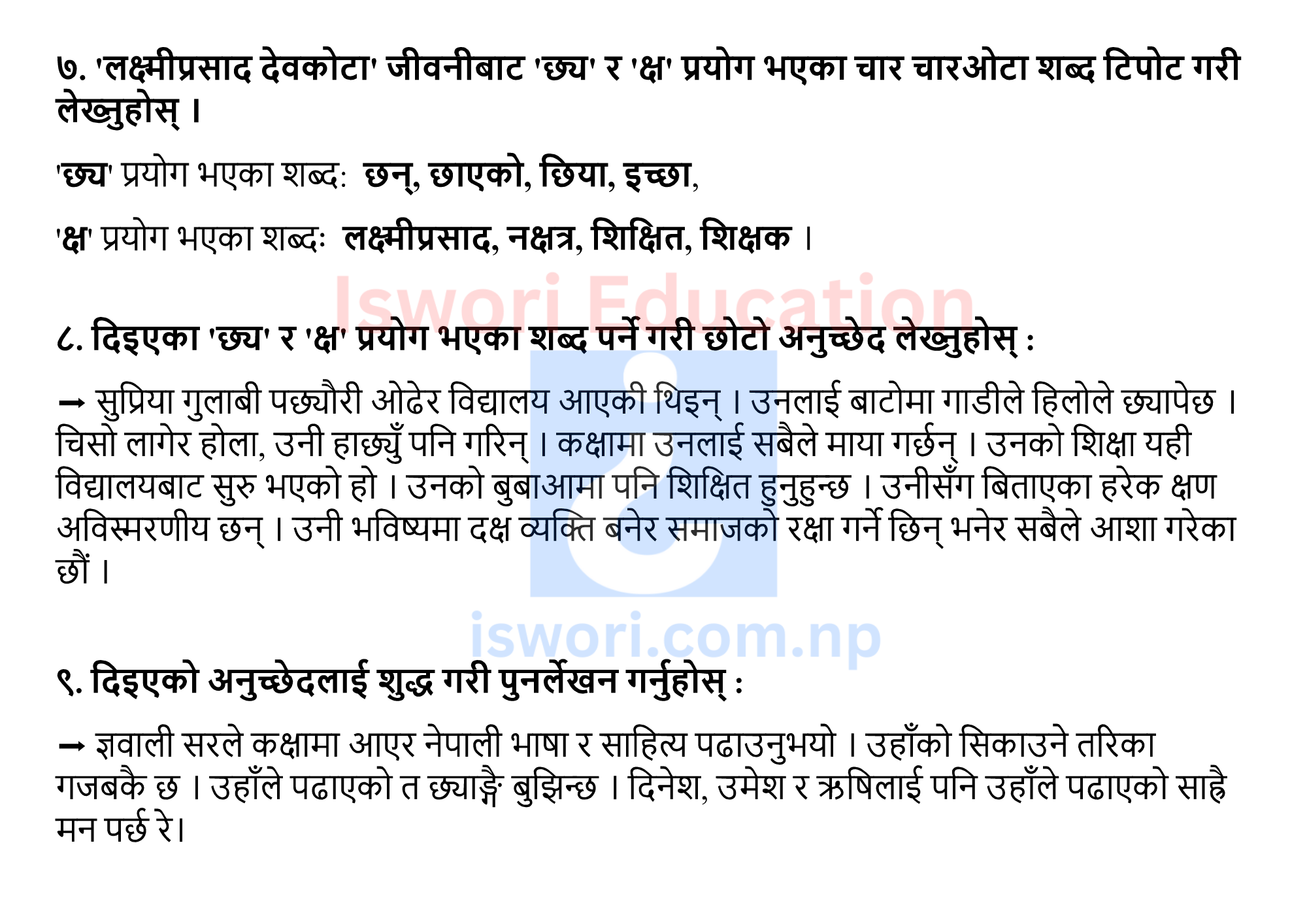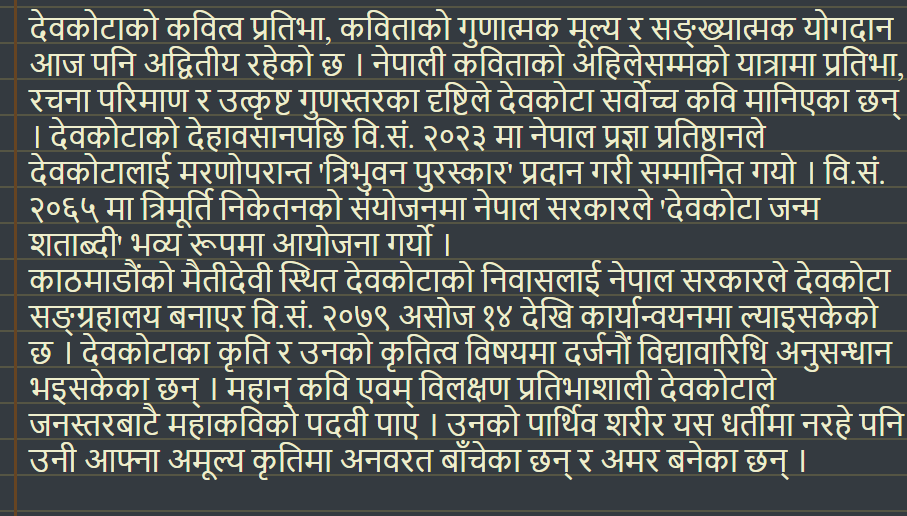Unit 5: Laxmi Prasad Devkota
Complete Exercise, Question Answer Solution, Grammar, Summary (Audio Summary) of Class 10 Nepali Unit 5 Laxmi Prasad Devkota. CDC update course content for the year 2080 for class 10 Nepali.
Check:
Laxmi Prasad Devkota is a Biography about Mahakabi Laxmi Prasad Devkota's Life, Books, and His Literature Works, Contribution to Nepali Literature, and His Personality was discussed in this Class 10 Nepali Book.
About Laxmi Prasad Devkota
Laxmi Prasad Devkota (Nepali: लक्ष्मीप्रसाद देवकोटा) (1909-1959) was a Nepali poet, playwright, novelist, and a politician. Honored with the title of Mahakabi (Nepali: महाकवि) in Nepali literature, he was known as a poet with a golden heart. He is considered to be one of the greatest and most famous literary figures in Nepal. Some of his popular works include the best-selling Muna Madan, along with Sulochana, Kunjini, Bhikhari, and Shakuntala.
You can listen Audio Novel from below for whole Complete Biography about Laxmi Prasad Devkota.
Unit 5: Laxmi Prasad Devkota Exercise
Yesto Kahile Nahos Exercise Question Answer, Grammar Unit 1 Answer Solution is given below:
Laxmi Prasad Devkota Biography
Laxmi Prasad Devkota (1909-1959) was a prominent Nepali poet, playwright, novelist, and politician. He is honored with the title of "Mahakavi," which means "Great Poet" in Nepali literature. Devkota is considered one of the greatest and most famous literary figures in Nepal.
Born on November 13, 1909, in Dhobidhara, Kathmandu, Nepal, Devkota was the son of Teel Madhav Devkota and Amar Rajya Lakshmi Devi. His father was a Sanskrit scholar, and Devkota received his early education under his guidance. He attended Durbar High School, where he studied both Sanskrit grammar and English. After completing his matriculation exams in Patna at the age of 17, he pursued a Bachelor of Arts and Bachelor of Laws at Tri-Chandra College and Patna University, respectively. However, he couldn't complete his master's degree due to financial constraints.
Devkota's literary career had a significant impact on Nepali literature. He initiated a modern Nepali language romantic movement and departed from the dominance of Sanskrit tradition in Nepali literature at that time. One of his most popular works is the epic poem "Muna Madan," which was published in 1930. It tells the story of Madan, a traveling merchant who leaves his wife, Muna, behind to earn money in Tibet. The poem depicts the hardships of the journey, the pain of separation, and the longing for loved ones.
Devkota's masterpiece, "Muna Madan," is considered the best-selling book in the history of Nepali literature. It gained immediate recognition from the Rana rulers of Nepal. Another notable work by Devkota is "Shakuntala," which he wrote in a mere three months. It is the first Mahakavya (epic poem) written in the Nepali language and is based on Kalidasa's famous Sanskrit play, "Abhijñānaśākuntalam." Devkota demonstrated his mastery of Sanskrit meter and diction while primarily working in Nepali.
In addition to poetry, Devkota published collections of short lyric poems in various traditional and non-traditional forms and meters. His poetry often showed the influence of English Romantic poets such as Wordsworth and Coleridge. He also made significant contributions to the essay genre, introducing a more fluid and colloquial style in his essays. Devkota's essays were satirical, humorous, and critical of the Western influences on Nepali society.
Devkota's political involvement was marked by his opposition to the Rana dynasty, which ruled Nepal at the time. Although he was not a member of any established political party, his poetry reflected a rebellious attitude against the oppressive regime. Devkota worked as an editor for the Nepali Congress newspaper "Yugvani" during his self-exile in Varanasi.
Laxmi Prasad Devkota passed away on September 14, 1959, at the age of 49. He left behind a remarkable literary legacy and is revered as a literary icon in Nepal. His contributions to Nepali literature continue to inspire and resonate with readers to this day.
Laxmi Prasad Devkota Class 10 Nepali Mulbhav
Complete Nepali Summary, Mul Bhab of Class 10 Nepali Unit 5 is given as:
Laxmi Prasad Devkota Biography FAQs
Who is Laxmi Prasad Devkota?
Laxmi Prasad Devkota (1909-1959) was a renowned Nepali poet, writer, and scholar. He is widely regarded as the pioneer of modern Nepali literature and one of the greatest literary figures in Nepal's history.
What are Laxmi Prasad Devkota's major contributions to Nepali literature?
Laxmi Prasad Devkota made significant contributions to Nepali literature. His poetic works, characterized by their innovative style and deep philosophical insights, transformed the landscape of Nepali poetry. Devkota's masterpiece, "Muna Madan," is one of his most acclaimed works. He also played a crucial role in popularizing and modernizing the Nepali language, and his essays and critical writings enriched the literary discourse in Nepal. Devkota's legacy continues to inspire and influence generations of poets and writers.
What awards and honors did Laxmi Prasad Devkota receive?
Laxmi Prasad Devkota received several prestigious awards and honors for his literary contributions. He was honored with the Tribhuvan Award, which is the highest literary award in Nepal, posthumously after his death in 2023. His recognition as "Mahakavi," meaning the great poet, by the public highlights his significant impact on Nepali literature. Devkota's works continue to be studied and celebrated, solidifying his status as an immortal figure in Nepali literary history.
What is Laxmi Prasad Devkota's most famous work?
Laxmi Prasad Devkota's most famous work is "Muna Madan." It is an epic narrative poem that tells the story of Madan, a man who leaves his wife Muna behind to seek employment in Lhasa, Tibet. The poem explores themes of love, sacrifice, and the human condition. "Muna Madan" is considered a masterpiece of Nepali literature and has been widely read and celebrated for its poetic beauty and emotional depth.
How did Laxmi Prasad Devkota contribute to the promotion of the Nepali language?
Laxmi Prasad Devkota played a crucial role in promoting and modernizing the Nepali language. He advocated for the use of Nepali in literature and established a new standard for the language through his own writings. Devkota's works helped elevate Nepali literature to new heights and inspired other writers to explore the potential of the language. His linguistic contributions continue to shape the development and preservation of the Nepali language today.
What is the significance of the Tribhuvan Award received by Laxmi Prasad Devkota?
The Tribhuvan Award, received by Laxmi Prasad Devkota posthumously, holds immense significance in Nepali literature. It is the highest literary award in Nepal and is bestowed upon individuals who have made exceptional contributions to the field of literature. The award recognizes Devkota's literary genius, his profound impact on Nepali literature, and his enduring legacy. It solidifies his position as a literary icon and serves as a testament to the enduring value of his works.
How is Laxmi Prasad Devkota remembered today?
Laxmi Prasad Devkota is remembered as a literary giant and an iconic figure in Nepali literature. His works continue to be studied, celebrated, and revered by scholars, writers, and readers alike. Devkota's poems and writings are taught in schools and universities, ensuring that his legacy lives on through future generations. His profound insights, innovative style, and contributions to the Nepali language have made him immortal in the hearts and minds of the Nepali people.
Keywords
- Class 10 Nepali Unit 5 Laxmi Prasad Devkota Exercise, Question Answer Solution
- Laxmi Prasad Devkota Biography, Mul Bhav, FAQs
Credit: Youtube Video


